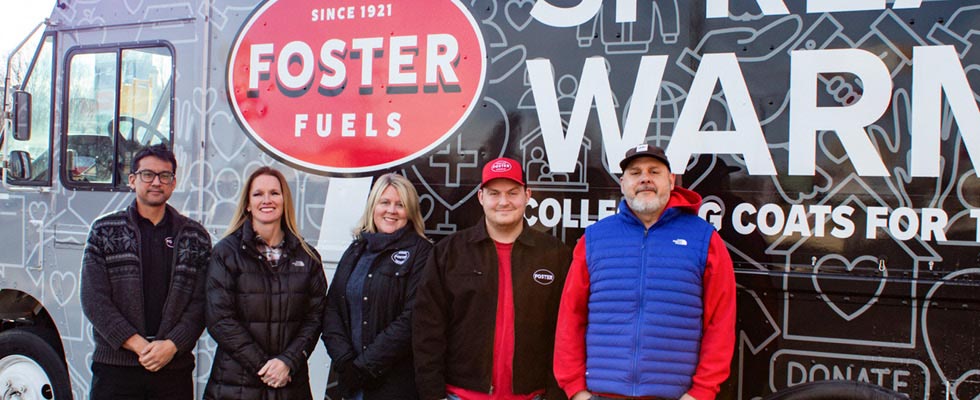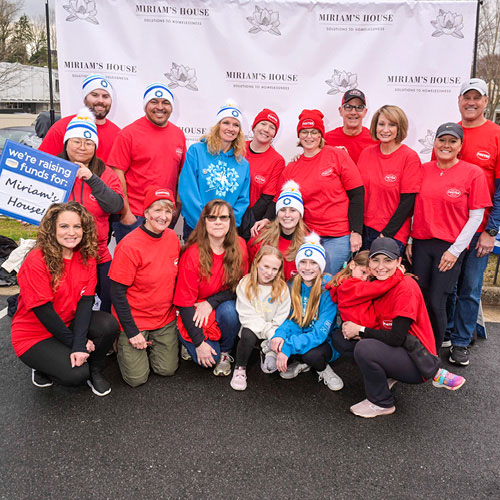
Note from the editor: We often hear about the most effective business strategies for building a successful propane company, but how often do we think about initiatives that exist alongside and in harmony with everyday business practices? Philanthropy is one of those initiatives that allows you and your employees to give back to those in need. Fostering goodwill with your community is, of course, great for your business’s legacy, but it also signifies to your employees that you have a culture of caring about the good of the community beyond your company’s bottom line. Ahead, learn about the Foster Foundation, Foster Fuels’ philanthropic arm — what it grew out of, how it’s impacting both the surrounding community and the employees within the business, and why this could be a meaningful addition to your company’s workplace culture.
Over 100 years ago, L.H. Foster began Foster Fuels and delivered flour, ice and lamp oil to his local community. This fourth-generation, family-owned and -operated company now employs over 250 individuals with propane service at the heart of its central Virginia operations. As Foster Fuels has grown, so has the company’s desire to help those who are going though devastating times.

which raises awareness and funds for homelessness.
In 2003, Foster Fuels began the Mission Critical initiative, a division designed to respond to natural disasters and offer relief to affected areas. Since then, Mission Critical has grown into a large part of the company, providing services nationwide and internationally. In 2017, CEO Watt Foster and President Will Rohrig deployed to Puerto Rico with the Mission Critical team following the devastation of Hurricane Maria. This immersive experience gave Watt a deeper understanding of those in need. He and his wife Jennifer began researching options on how to help those in their own market area. In 2018, they developed the Foster Foundation with the mission to support the efforts of local organizations that share the company’s vision of a community where all citizens can thrive.
Jennifer began oversight of all philanthropic endeavors of the Foundation. With a specific desire to improve the lives of children, she began collecting used coats from friends and family to donate to those in need. An initiative that started with only a few coats has grown into a massive, months-long campaign designed to acquire, launder and distribute gently used coats to those who need them. Last winter, the Spread the Warmth campaign distributed over 6,000 coats through social services, schools and nonprofits.
The Foundation also sponsors many philanthropic initiatives hosted by like-minded organizations and encourages Foster Fuels employees to be involved. By highlighting volunteer opportunities, employers can make it easier for staff to find appealing and accessible options. It’s not all about financial donations; there are many ways people can give back. A strong culture of community service began to quickly develop. Employee efforts were recognized and highlighted in the monthly newsletter, which built volunteerism as a shared company focus.
To further increase engagement, Foster Fuels began offering a floating paid volunteer day. All Foster employees are now granted the option to replace a day at the office with a day of volunteering. Employees can also enter volunteer hours in Mobile Serve, a tracking platform. Once an employee reaches 100 hours, Foster Fuels will donate up to $1,000 to that employee’s preferred non-profit. As a result, volunteering has skyrocketed, and many employees have stated they look forward to such opportunities.
Aemee Garner, a Foster Fuels customer service representative, says, “Having the support and resources from my employer amplifies my desire to give back to those in need. Here I can fully utilize my desire to help others.”
The company is equally dedicated to its employees and their families. The cost of higher education in the United States has increased 180% since 1980, creating a hardship for many desiring a higher education. Foster Fuels offers a scholarship program for employees and their dependents, which can be applied to a four-year undergraduate program, trade school or certification course. Churches and schools attended by employees and their immediate families also receive annual financial donations. Winston Churchill once said, “You make a living by what you get; you make a life by what you give.”
Lindie Honsberger, vice president of propane service, has seen the propane division flourish and believes that the organization’s dedication to philanthropy plays a large role in its success. Watt, Jennifer and the Foster family have proven that incorporating philanthropy into company culture makes a huge difference in the environment of a workplace.
Values clearly shared between management and non-management strengthen the company’s unity and cohesion and will carry forward beyond employees to their dependents and the community at large.


